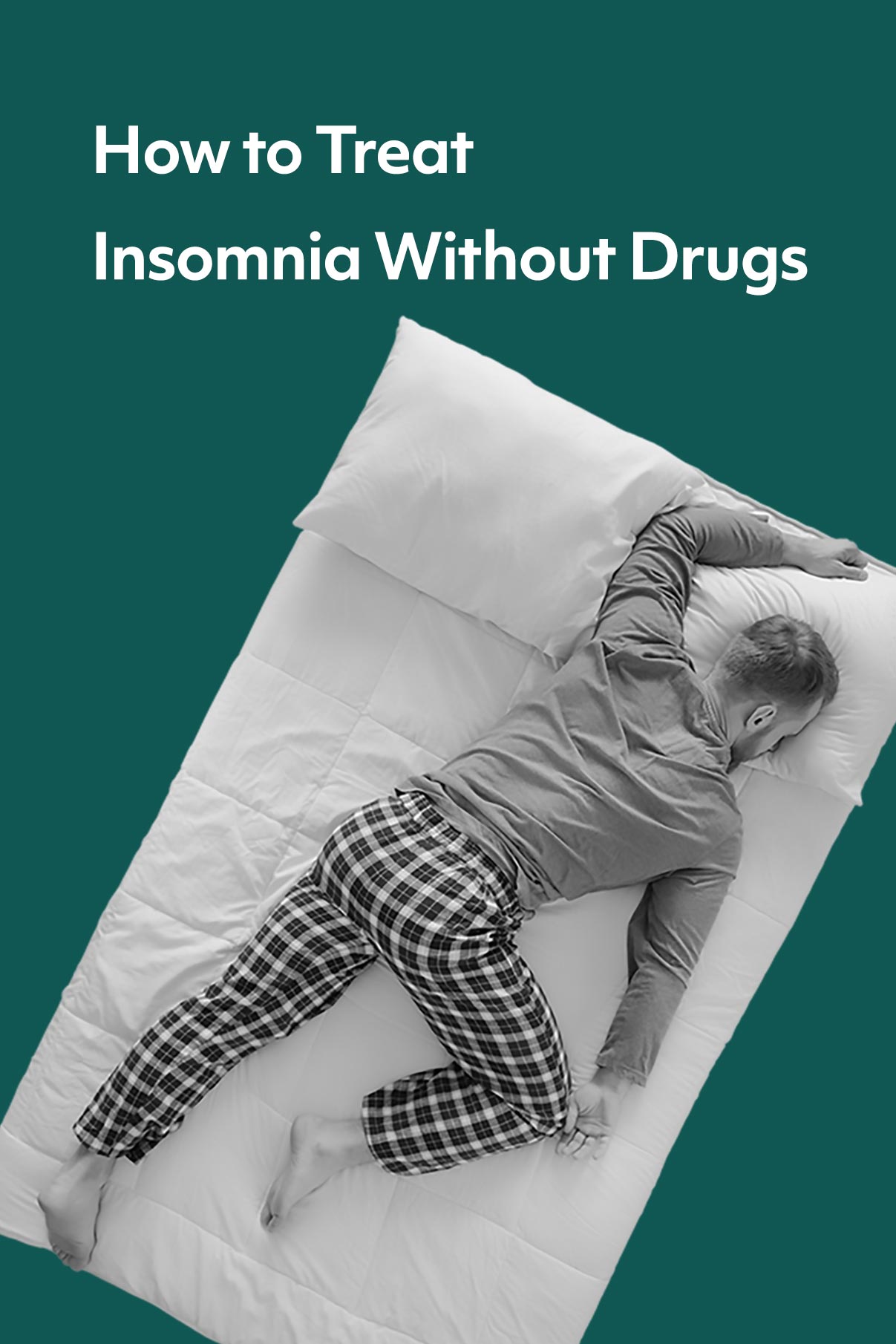Sleep is more than a matter of comfort; it’s a matter of health! Here are suggestions to treat insomnia without drugs.
When you have insomnia, you may feel like the only person struggling to sleep, but it’s actually quite common. According to the Centers for Disease Control and Prevention (CDC), approximately 35 percent of Americans get less than seven hours of sleep per night, which can take a toll on their health. Poor sleep can lower your mood, your ability to concentrate, and is even associated with increased health risks over the long term.
There are a ton of options for treating insomnia, from medication to therapy and even suggestions to improve one’s sleeping routine. For people in recovery, however, it can be tricky to pick a treatment that is non-addictive, as some medications can become habit-forming. Don’t worry, though! We’ve got you covered in this blog about non-drug-related treatments for insomnia.
What is insomnia?
Insomnia is a sleep disorder characterized by an inability to get to sleep or sustain sleep. Some people may experience waking early in the morning and have difficulty falling asleep again. Consequently, those with insomnia often feel tired during the day and struggle to do day-to-day activities.
There are several potential causes of insomnia including substance use, depression, the side effects of medications, or an undetected illness.
There are a range of other sleep disorders including narcolepsy (excessive daytime sleepiness), Restless Legs Syndrome (fidgeting and restlessness in the legs at night), and sleep apnea (when people struggle to breathe when sleeping).
How much sleep do I need?
According to the CDC most adults, aged 18-60 years old require 7 or more hours per night. However, sleep recommendations vary depending on your age group. The CDC outline the following age-based recommendations:
- Newborn (0-13 months): 14-17 hours sleep
- Infant (4-12 months): 12-16 hours sleep in a 24-hour period (including naps)
- Toddler (1-2 years) 11-14 hours sleep in a 24-hour period (including naps)
- Preschool (3-5 years): 10-13 hours sleep in a 24-hour period (including naps)
- School age (6-12 years): 9-12 hours sleep in a 24-hour period
- Teen (13-18 years): 8-10 hours per 24-hour period
- Adults
- 18-60 years: 7 or more hours per night
- 61-64 years: 7-9 hours per night
- 65 years and older: 7-8 hours per night
While the amount of sleep is important, there are other aspects of sleep—like your routine—that can contribute to your health and well-being. A lack of good quality sleep can make you feel unrested or cause impairment in everyday life, like driving. It can also cause you to feel irritable, increase blood pressure, exacerbate chronic pain, and increase anxiety or depression.
How can I improve my sleep without medication?
While your medical provider is best suited to be able to investigate the causes of your insomnia and help you come up with some potential solutions, here are some general tips for improving your sleep:
- Go to bed at the same time each night and wake up at the same time in the morning, even on weekends.
- Expose yourself to lots of bright natural light during the day.
- Create a room for sleep: ensure it is dark, quiet, relaxing, cool (65 degrees is the optimal sleeping temperature), and relaxing.
- Remove distractions and brightly light devices like smartphones and TVs. It is generally recommended that you stop using these devices at least an hour before bed.
- Avoid large meals before going to bed.
- Cease caffeine consumption by around 3pm, or earlier if possible.
- Try to be active during the day, which can help improve your quality of sleep and ability to get to sleep.
- Use a white noise machine.
- Try yoga nidra class.
- Meditate.
- Do a breathing exercise.
- Use a mobile sleep app, like CBT-i Coach, Sleep Cycle, Pzizz. These help to monitor your movements and quality of sleep.
You can find more information about sleep hygiene and creating healthy sleeping habits on the CDCs website.
If you are still struggling to get to sleep it may be worth keeping a sleep diary that includes notes about when you go to sleep, wake up, how long it took to sleep, the amount of caffeine you consumed that day, and when your last drink and meal was. This is something that you can take to your provider.
Some other potential solutions for insomnia without medication include:
- Sleepy teas. There are several different herbal teas that promote sleep.
- Take a warm bath or shower before bed.
- Cognitive-behavioral therapy is a talking therapy that can help[ you to control the negative thoughts and actions that may be associated with your insomnia.
Tips and resources to help with insomnia
- Basics About Sleep (CDC)
- MIT Medical:
- Resources for children’s sleep problems (Boston Children’s Hospital Pediatric Sleep Disorders Center)
- New parents in need of sleep (New York Times)
- Sleep and Academic Success (University of Nebraska, University Health Center)
- Breathing exercise (Healthline)









